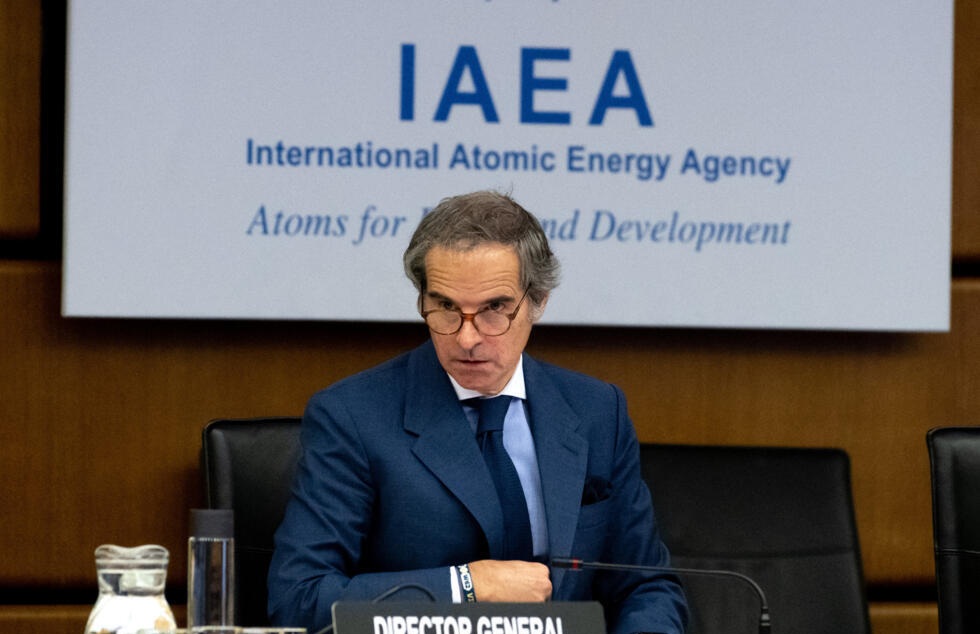The head of the United Nations nuclear watchdog has raised alarms over the extensive damage caused to Iran’s nuclear infrastructure following recent military strikes by Israel and the United States.
Speaking at an emergency meeting of the International Atomic Energy Agency (IAEA) on Monday, June 23, 2025, Director-General Rafael Grossi revealed that Iran’s most sensitive nuclear facilities had suffered significant destruction.
The attacks, launched in mid-June, targeted sites central to Iran’s uranium enrichment program, including Fordow, Natanz, and Isfahan.
Grossi said satellite imagery and limited data indicate deep structural impacts, particularly at the Fordow facility.
The Fordow facility is reportedly built into a mountain to protect against aerial assaults.
He noted the presence of craters likely created by U.S. ground-penetrating bombs.
“While no one, including the IAEA, can yet fully assess the extent of the underground damage, we expect it to be very significant,” he said.
Grossi cited the vulnerability of delicate centrifuge systems to shockwaves and vibrations.
The strikes followed Israeli claims that Iran was nearing the capability to develop a nuclear weapon.
The U.S., which joined the conflict on June 15, echoed these concerns.
President Donald Trump stated that American airstrikes had “obliterated” Iran’s nuclear infrastructure, targeting all three major sites simultaneously.
Grossi confirmed that the Natanz facility, long at the center of international scrutiny, sustained direct hits on its fuel enrichment plant.
At Isfahan, airstrikes reportedly destroyed key structures associated with the uranium conversion process.
Entrances to underground storage tunnels were also hit, further compromising Iran’s ability to safeguard enriched material.
The attacks have escalated tensions across the region. Israeli airstrikes continued into Monday, with large explosions reported in and around Tehran.
Both Israeli and Iranian officials acknowledged a second attack on Fordow.
In retaliation, Iran has launched successive waves of missiles and drones toward Israeli territory and has vowed to strike U.S. interests as well.
Amid growing hostilities, Iran has threatened to withdraw from the Nuclear Non-Proliferation Treaty (NPT).
The NPT is supposedly a key international agreement designed to prevent the spread of nuclear weapons.
Iranian lawmakers are also pushing to halt all cooperation with the IAEA, accusing the agency of bias.
Tehran claims that Grossi’s past reports on its nuclear activities provided justification for the Israeli and U.S. strikes.
Grossi did not directly condemn either nation during the IAEA board meeting.
On the other hand, he did reiterate a longstanding principle: “Armed attacks on nuclear facilities should never take place.”
He urged all parties to return to diplomatic negotiations, warning that further escalation could bring “violence and destruction to unimaginable levels.”
Grossi also called on Iran to allow international inspectors into the damaged facilities to conduct independent assessments.
Despite the scale of the strikes, no radiation leaks have been reported so far.
“I am ready to travel to Iran immediately,” Grossi said.
“We need to keep working together despite our differences.”
Iran has yet to respond to the request, and no official invitation has been extended to the IAEA chief.
In an interview with Al Jazeera, former IAEA official Tariq Rauf said that while Iran’s short-term nuclear production has likely been disrupted, the country still possesses a substantial stockpile of enriched uranium.
According to Rauf, approximately 9,000 kilograms (about 19,800 pounds) of uranium enriched between 2% and 60% remains unaccounted for following the strikes.
“At some point, the IAEA will need to go in and verify the material balance,” Rauf said, emphasizing the importance of confirming that no nuclear material has been diverted.
The situation underscores the growing risk that nuclear tensions, once largely confined to negotiations and inspections, are now tipping into open conflict.
With trust in international agreements rapidly eroding, the future of nuclear diplomacy in the region remains increasingly uncertain.
As the international community watches closely, the IAEA continues to stress the urgent need for calm, transparency, and a return to dialogue, before a volatile situation spirals even further out of control.







